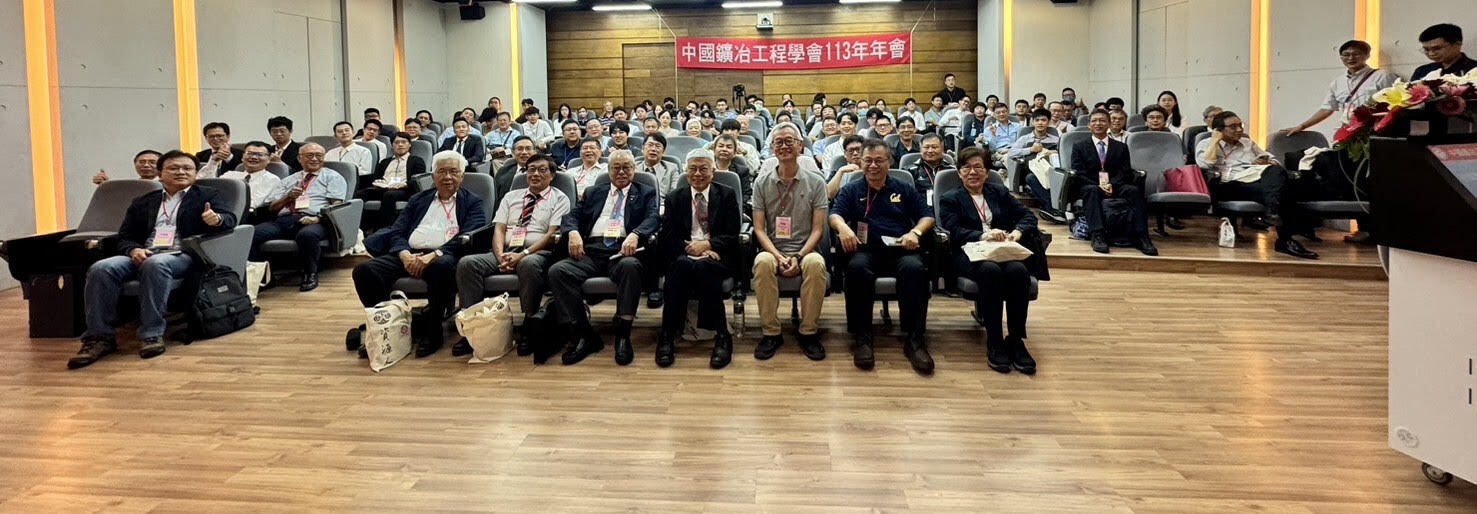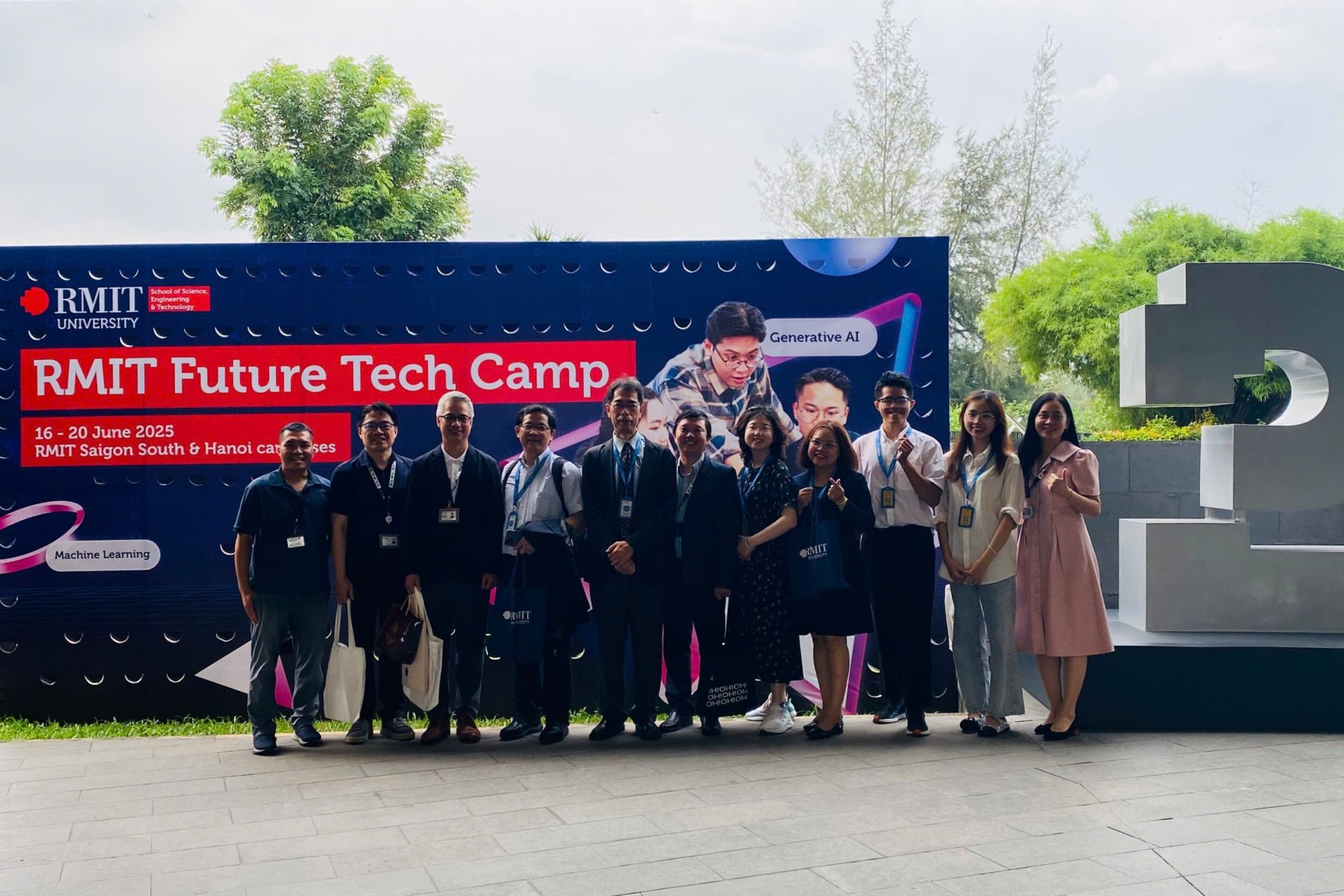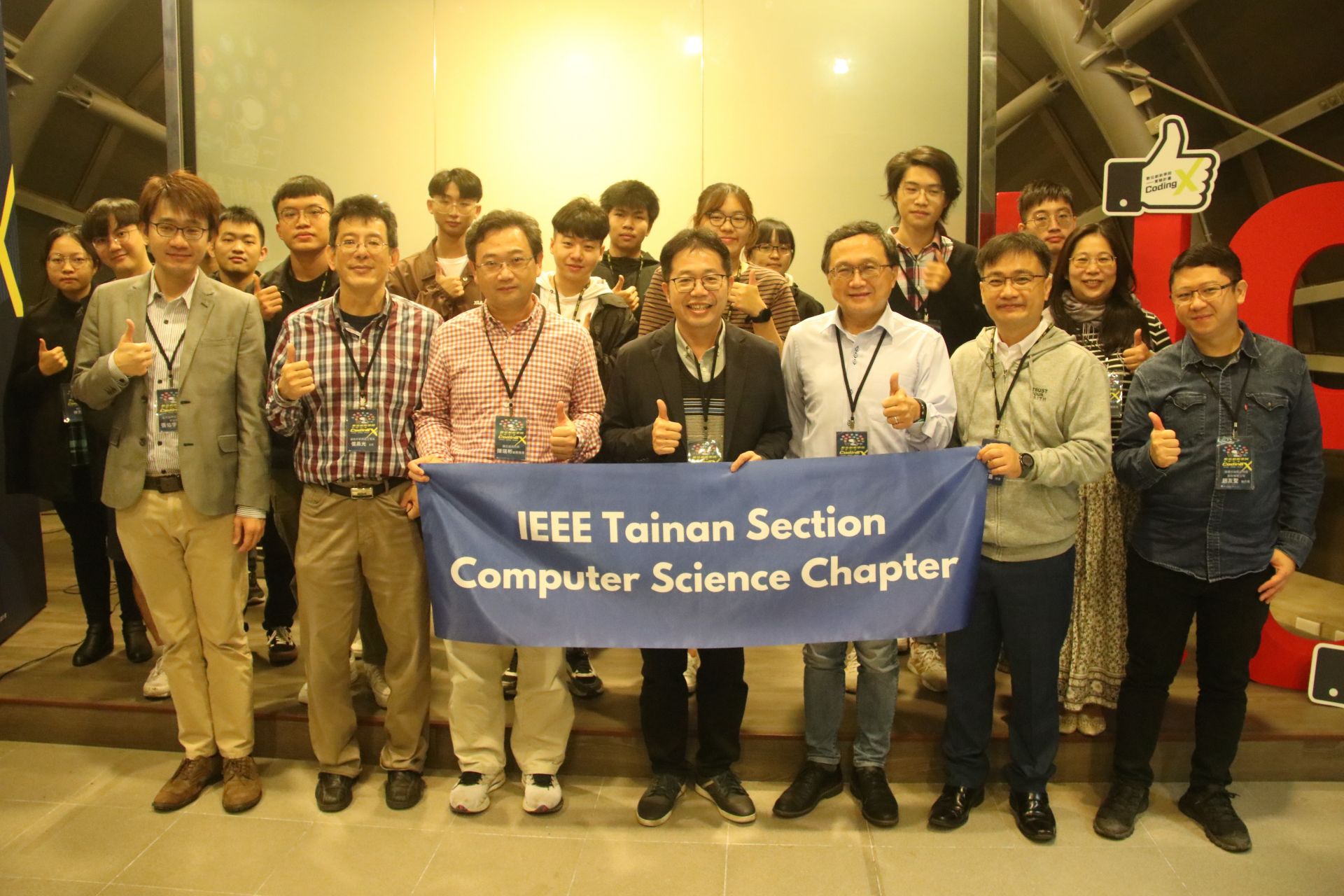In June 2025, the EMBA program at National Cheng Kung University (NCKU) took a significant step by hosting the “Top National Universities EMBA Joint Program – Northern Region” in Taipei for the first time. This marked a new milestone in fostering collaborative learning and integrating academic resources between the north and south of Taiwan. The four-day program, launched on June 28, brought together esteemed faculty from five top institutions—National Tsing Hua University, National Taiwan University of Science and Technology, National Central University, National Sun Yat-sen University, and NCKU—to co-create a high-level executive learning experience that blended knowledge and practice, theory and experience.
The course content covered a wide range of topics, emphasizing a balanced integration of theoretical frameworks and practical applications. Professor Hung-Chang Chiu of National Tsing Hua University used two classic short marketing cases to guide participants in analyzing strategic challenges in corporate marketing. Professor Bin Luan of National Taiwan University of Science and Technology led discussions on innovation and entrepreneurship using a well-known Harvard case, and incorporated practical exercises focused on applications of artificial intelligence. Professor Chun-Te Lu of National Central University focused on the analysis and implementation of Industry 4.0. Professor Chia-Fen Tsai of National Sun Yat-sen University introduced decision-making simulations, allowing students to explore the cognitive biases that often arise in managerial processes. Professor Yu-Yu Chang of NCKU offered the course “Strategic Challenges in Supply Chain Decentralization,” which addressed how global enterprises can navigate diverse supply chain issues under high uncertainty. Through the use of analytical tools such as PESTEL, Porter’s Five Forces, the VRIO framework, and organizational ambidexterity theory, participants engaged in group discussions to develop actionable strategic proposals.
To stimulate diverse perspectives and broaden learning horizons, participants were grouped across institutions. Under the guidance of instructors and through peer interaction, cross-university collaboration became not only an extension of classroom teaching but also a platform for intellectual exchange and emotional connection. This collective learning process brought theory off the page and allowed practical insight to take root, demonstrating the EMBA program’s capacity to integrate educational resources and cultivate forward-thinking leadership talent.
NCKU EMBA Executive Director Hsuan-Chu Lin personally attended the opening ceremony and delivered remarks. He noted that hosting the joint course in northern Taiwan for the first time in 2025 carried deep significance for the university. The program was meticulously planned with the highest standards, and he hoped that all participants would feel the passion, professionalism, and dedication that NCKU is known for. His speech conveyed not only the fundamental purpose of education but also NCKU’s firm commitment to interdisciplinary integration and shared learning across regions.
To strengthen the bond between faculty and students and to promote cross-school fellowship, a warm welcome dinner was held on the first day of the program. Guests and participants gathered to exchange learning experiences and build lasting connections. Ms. Chuan-Hsin Tseng, President of the NCKU EMBA Taipei Alumni Association, led a delegation of core members to show their support for the event. The gathering was full of warmth and camaraderie. Mr. Chung-Shan Yu (Class E109) and Ms. Li-Yueh Shih (Class E113) graciously sponsored the program’s signature “Sheriff Tea Eggs,” while Ms. Ya-Yun Cheng (Class E117) thoughtfully prepared “Chu-Sin Herbal Tea” as a souvenir. These generous contributions not only enriched the event with flavor but also reflected the deep spirit of support and solidarity within the NCKU community.
The event’s success was made possible by the leadership and coordination of alumni representatives from Class E117, Kang-Chun Fan and Nien-You Cheng, who, along with 20 classmates, took charge of event planning and on-site logistics. From venue setup and agenda planning to fine-tuning every detail, the team embodied the NCKU spirit of collaborative achievement and collective strength. This was not just a learning opportunity but also a demonstration of teamwork and shared responsibility.
Looking ahead, NCKU EMBA will continue to deepen cross-school collaboration and interdisciplinary integration. Through the creation of diverse learning platforms and innovative experiential teaching, the program aims to cultivate executive talents with global vision and real-world capabilities, bringing new energy to the sustainable innovation of Taiwanese enterprises. In this tapestry woven from knowledge and exchange, faculty and students from five universities have constructed a network of insight that bridges geography and industry. This event once again affirmed that it is only by walking together that we can achieve excellence. A journey of education begins here—illuminating the present and shaping the future.
The course content covered a wide range of topics, emphasizing a balanced integration of theoretical frameworks and practical applications. Professor Hung-Chang Chiu of National Tsing Hua University used two classic short marketing cases to guide participants in analyzing strategic challenges in corporate marketing. Professor Bin Luan of National Taiwan University of Science and Technology led discussions on innovation and entrepreneurship using a well-known Harvard case, and incorporated practical exercises focused on applications of artificial intelligence. Professor Chun-Te Lu of National Central University focused on the analysis and implementation of Industry 4.0. Professor Chia-Fen Tsai of National Sun Yat-sen University introduced decision-making simulations, allowing students to explore the cognitive biases that often arise in managerial processes. Professor Yu-Yu Chang of NCKU offered the course “Strategic Challenges in Supply Chain Decentralization,” which addressed how global enterprises can navigate diverse supply chain issues under high uncertainty. Through the use of analytical tools such as PESTEL, Porter’s Five Forces, the VRIO framework, and organizational ambidexterity theory, participants engaged in group discussions to develop actionable strategic proposals.
To stimulate diverse perspectives and broaden learning horizons, participants were grouped across institutions. Under the guidance of instructors and through peer interaction, cross-university collaboration became not only an extension of classroom teaching but also a platform for intellectual exchange and emotional connection. This collective learning process brought theory off the page and allowed practical insight to take root, demonstrating the EMBA program’s capacity to integrate educational resources and cultivate forward-thinking leadership talent.
NCKU EMBA Executive Director Hsuan-Chu Lin personally attended the opening ceremony and delivered remarks. He noted that hosting the joint course in northern Taiwan for the first time in 2025 carried deep significance for the university. The program was meticulously planned with the highest standards, and he hoped that all participants would feel the passion, professionalism, and dedication that NCKU is known for. His speech conveyed not only the fundamental purpose of education but also NCKU’s firm commitment to interdisciplinary integration and shared learning across regions.
To strengthen the bond between faculty and students and to promote cross-school fellowship, a warm welcome dinner was held on the first day of the program. Guests and participants gathered to exchange learning experiences and build lasting connections. Ms. Chuan-Hsin Tseng, President of the NCKU EMBA Taipei Alumni Association, led a delegation of core members to show their support for the event. The gathering was full of warmth and camaraderie. Mr. Chung-Shan Yu (Class E109) and Ms. Li-Yueh Shih (Class E113) graciously sponsored the program’s signature “Sheriff Tea Eggs,” while Ms. Ya-Yun Cheng (Class E117) thoughtfully prepared “Chu-Sin Herbal Tea” as a souvenir. These generous contributions not only enriched the event with flavor but also reflected the deep spirit of support and solidarity within the NCKU community.
The event’s success was made possible by the leadership and coordination of alumni representatives from Class E117, Kang-Chun Fan and Nien-You Cheng, who, along with 20 classmates, took charge of event planning and on-site logistics. From venue setup and agenda planning to fine-tuning every detail, the team embodied the NCKU spirit of collaborative achievement and collective strength. This was not just a learning opportunity but also a demonstration of teamwork and shared responsibility.
Looking ahead, NCKU EMBA will continue to deepen cross-school collaboration and interdisciplinary integration. Through the creation of diverse learning platforms and innovative experiential teaching, the program aims to cultivate executive talents with global vision and real-world capabilities, bringing new energy to the sustainable innovation of Taiwanese enterprises. In this tapestry woven from knowledge and exchange, faculty and students from five universities have constructed a network of insight that bridges geography and industry. This event once again affirmed that it is only by walking together that we can achieve excellence. A journey of education begins here—illuminating the present and shaping the future.
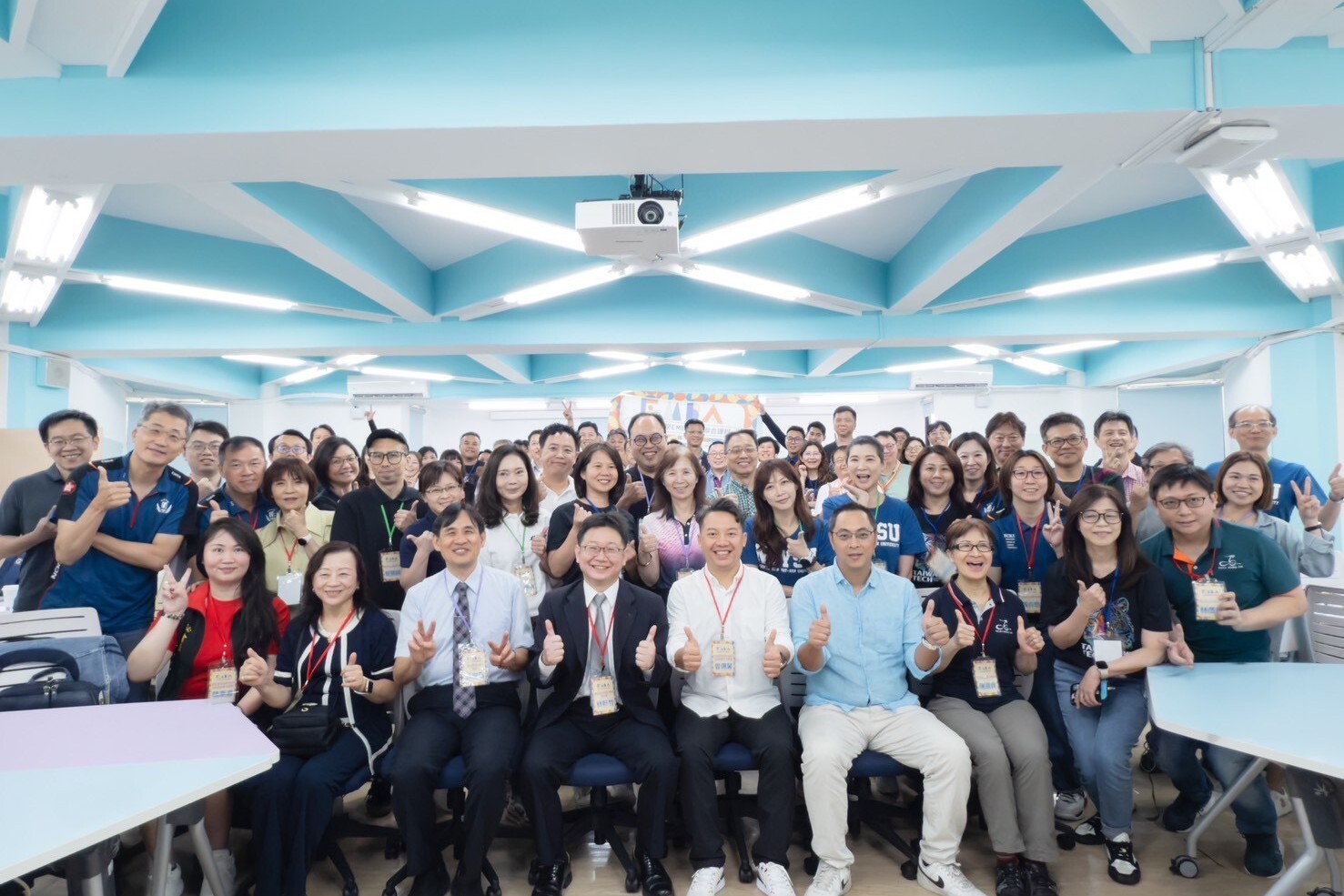
The “Top National Universities EMBA Joint Program – Northern Region” brings together faculty and participants from National Tsing Hua University, National Taiwan University of Science and Technology, National Central University, National Sun Yat-sen University, and National Cheng Kung University.
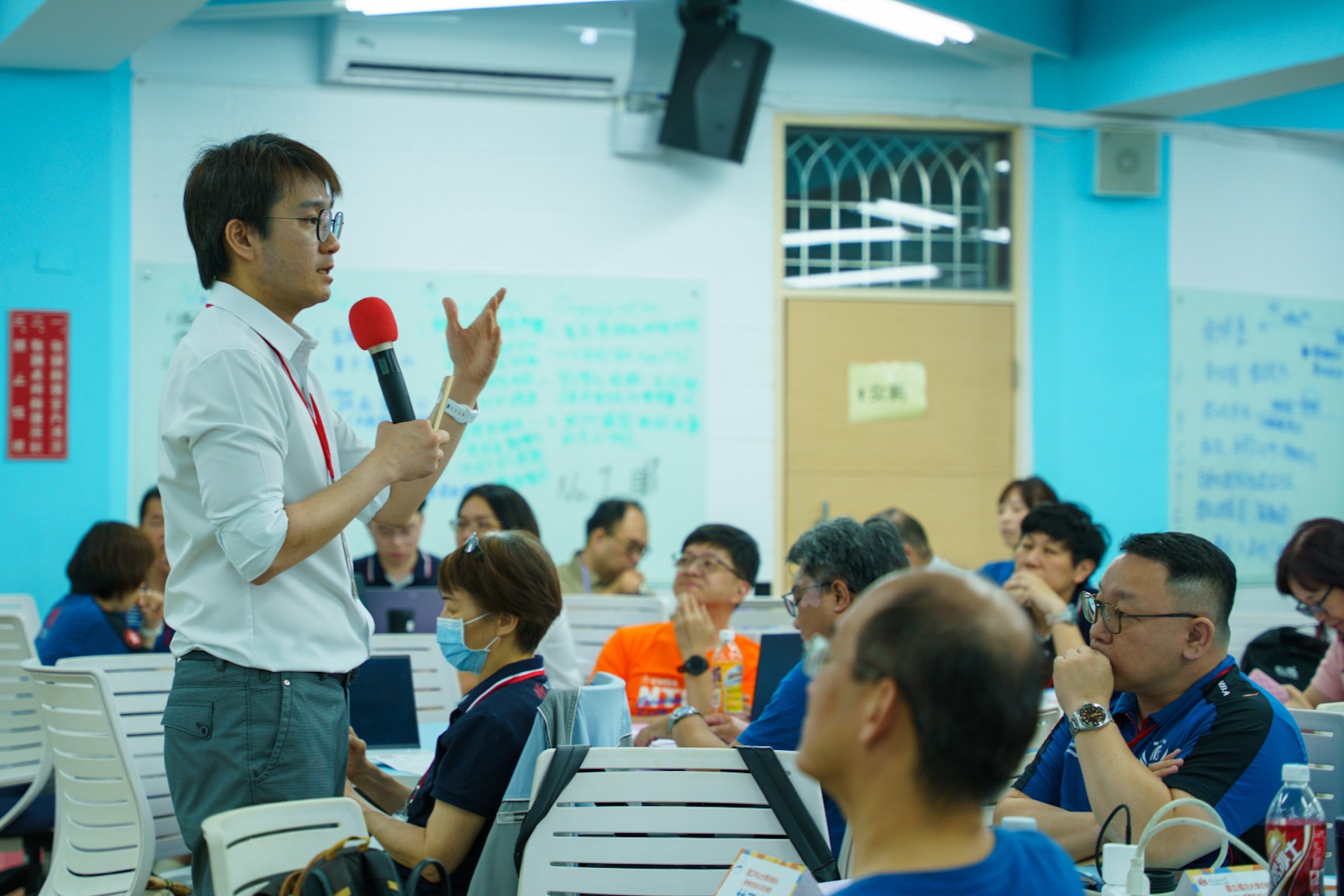
Professor Yu-Yu Chang of NCKU EMBA delivers a course on “Strategic Challenges in Supply Chain Decentralization.”
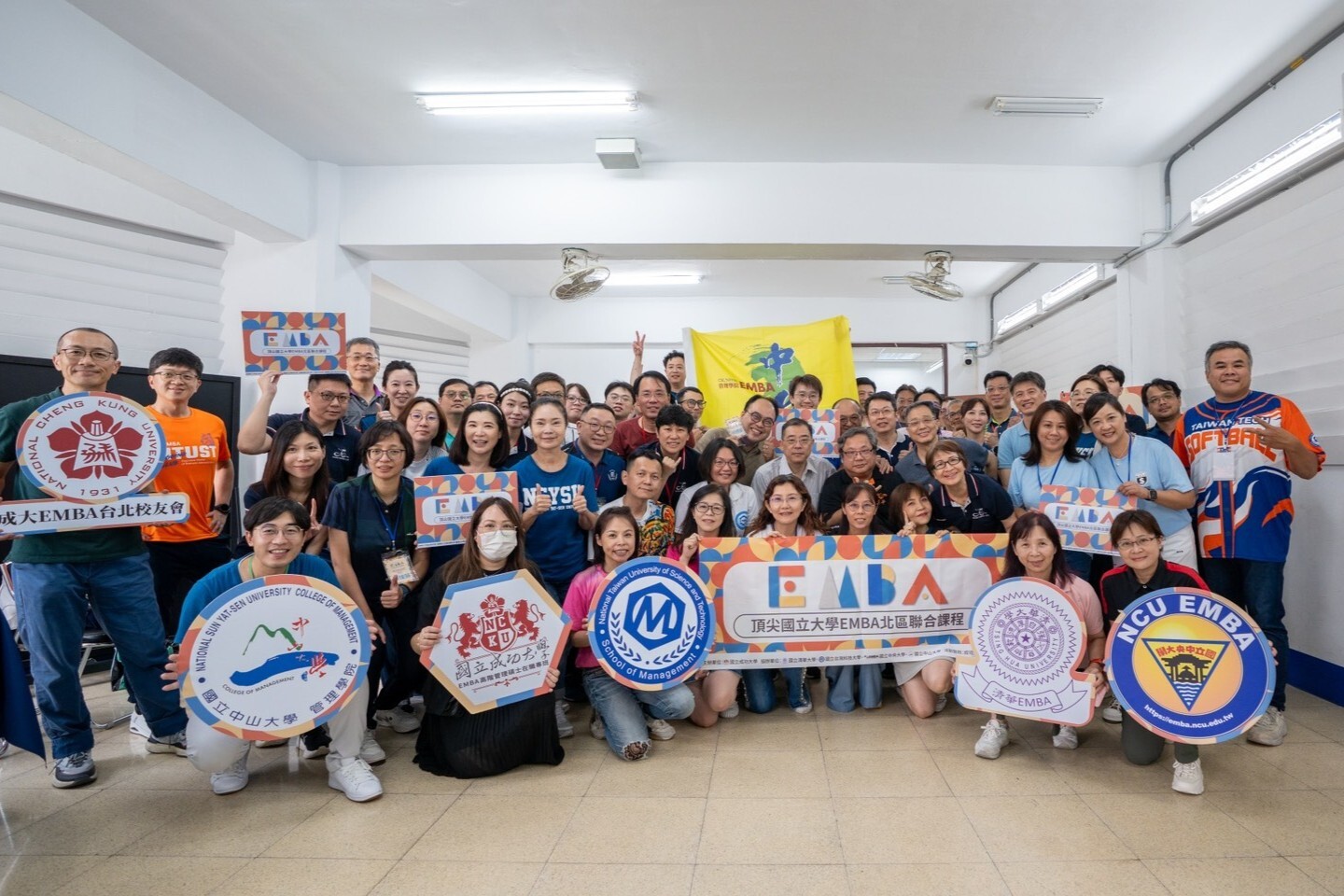
The NCKU EMBA program has consistently emphasized applying what is learned and putting knowledge into practice, remaining deeply committed to cultivating globally minded and action-oriented executive leaders.






